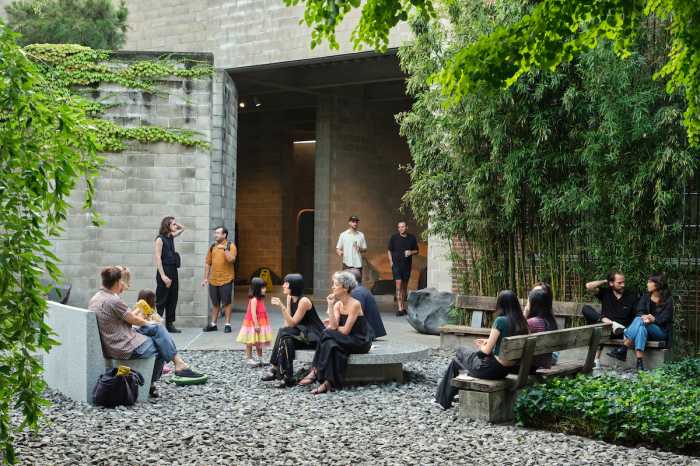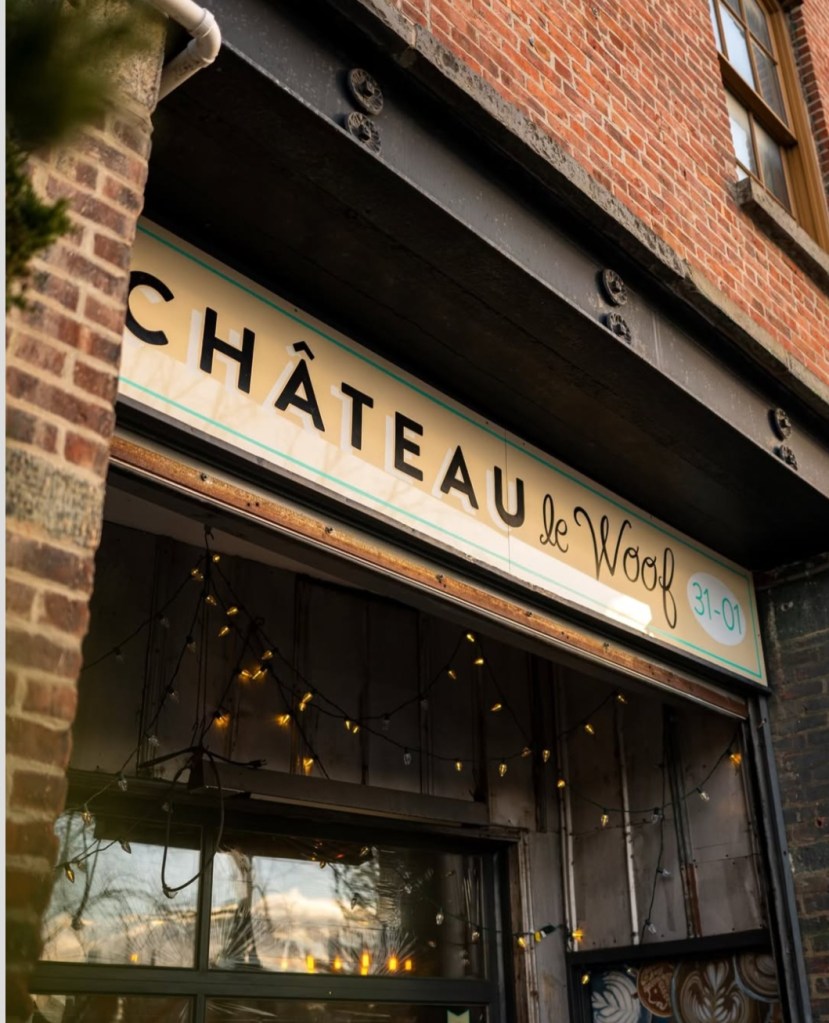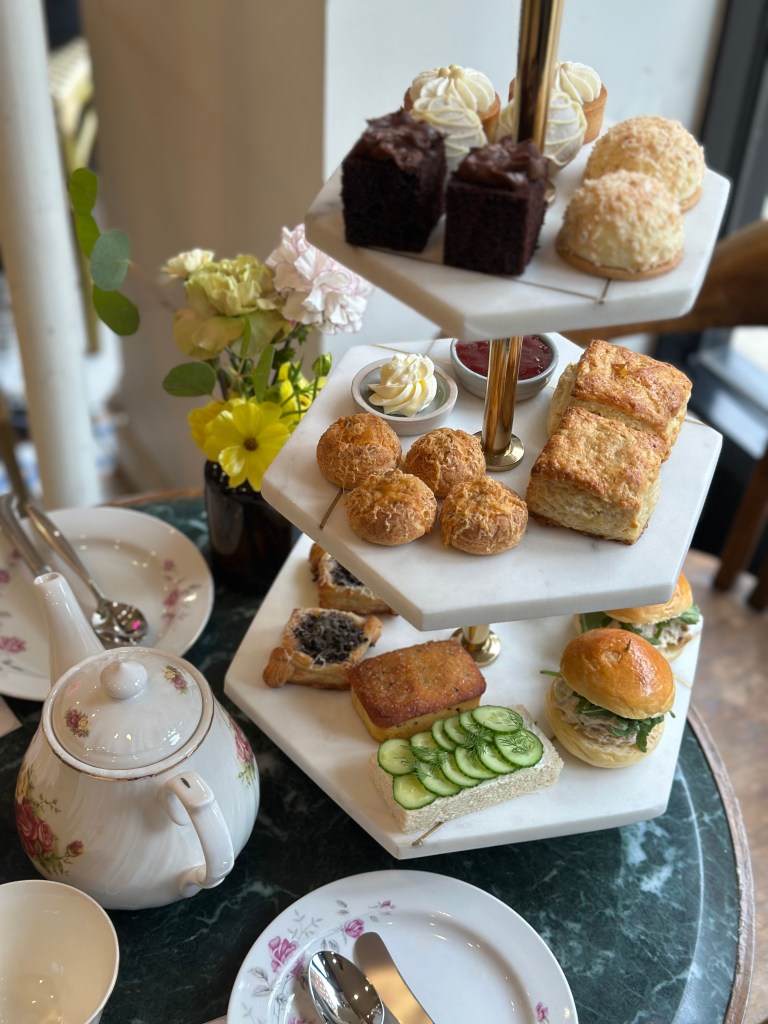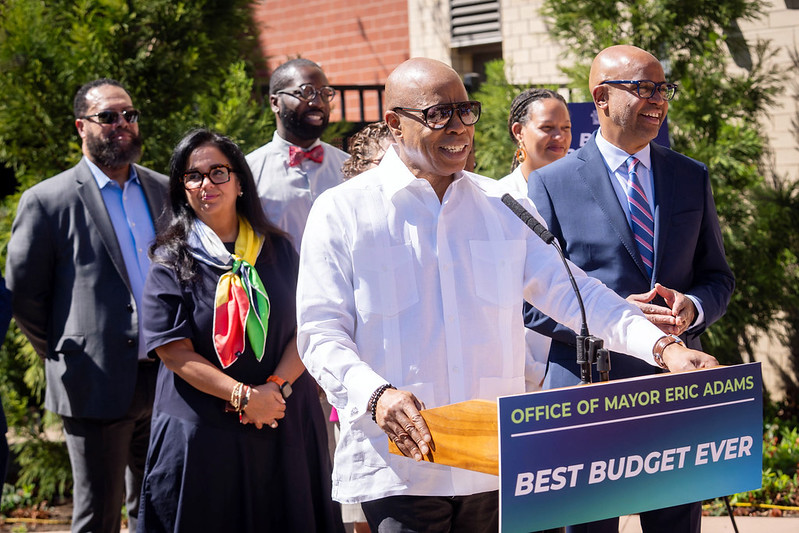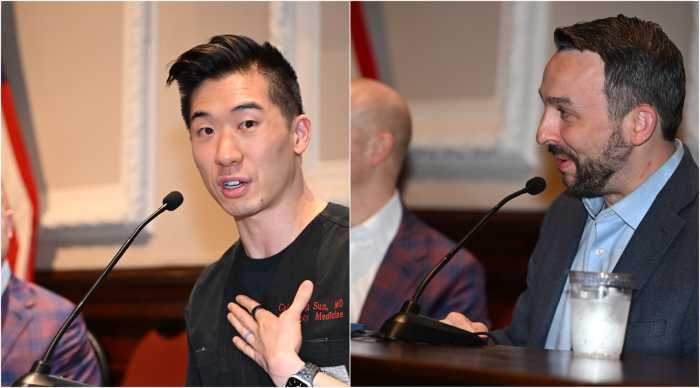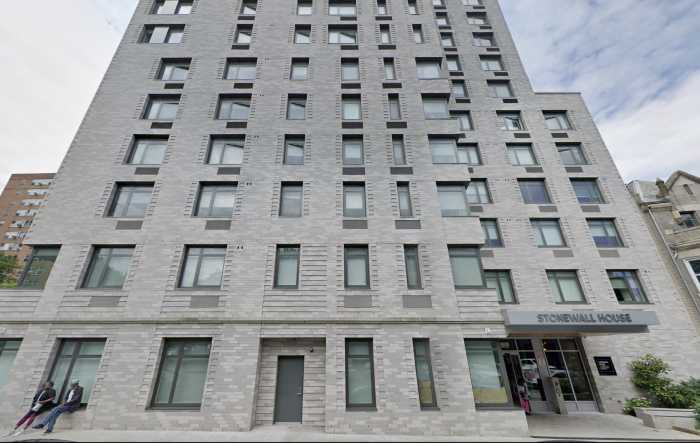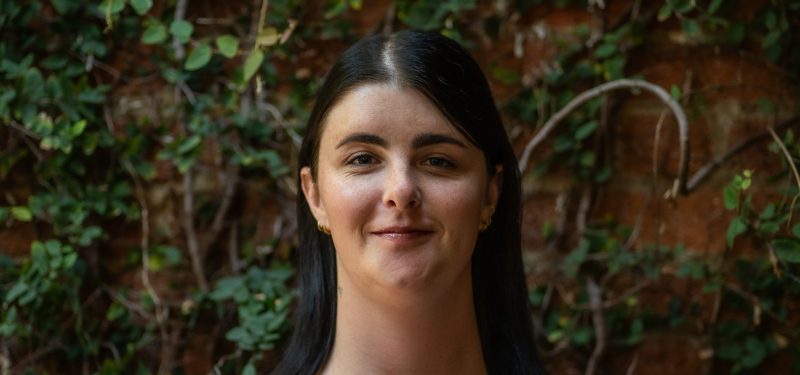By Adam Kramer
Sitting and talking to Amy Fischetti, executive director of the Queens County Farm Museum, one thing becomes apparent — separating the person from the job is nearly impossible.
For Fischetti, who started as a volunteer at the farm in 1988 and worked her way up to director in 1992, the museum is a major part of her life, which she cannot push away even for a second.
“It is the kind of job where you can’t look at a calendar and say I have three weeks of vacation time,” Fischetti said. “The farm becomes a very important piece of your life, like your children. You wouldn’t ignore it. You are involved in other organizations, but this place is all-consuming.”
Born in Meridian, Miss., Fischetti moved to the North with her family when she was 11 years old. She found herself in Bedford-Stuyvesant in Brooklyn, where she said she lost her Southern accent and took on a Brooklyn accent, which she still has, in order to survive.
After graduating from Hofstra, the Flushing resident worked in the business world and raised two children — Michael, 22, and Teresa, 19 — but with her background, working in a museum did not flash on her radar screen as a possible job.
“I never, never thought I would be working on a farm in the five boroughs,” she said. “I didn’t even know that there was a farm in New York City.”
Fischetti, who smiles constantly and has one of those deep hearty laughs that is contagious, started at the museum by chance. She said she ran into a friend who volunteered at the farm and was told to look into volunteering because it was such a wonderful place.
“You have to see how unique this place is,” she said.
The 47-acre museum at 73-50 Little Neck Parkway has been the site of continuous farming for more than 200 years and today it also is the Museum of Agricultural History of New York City. In addition, the museum also includes a farmhouse dating from 1772, planting fields, an orchard, farmyard and livestock.
The farm occupies the largest remaining tract of natural, undisturbed farmland in New York City and is listed in the National Register of Historic Places by the U.S. Department of Interior.
Over the year the farm will play host to about 500,000 people, including the 250,000 students who pass through the farm’s gates as part of its year-round educational program.
This year, Fischetti said, there has been a decline in educational programs and the farm has had 37,000 students cancel because parents and school districts are reluctant to have youth travel after Sept. 11. This has caused a $259,000 loss that is not recoverable, she said.
Fischetti who has done most of the jobs on the farm, now spends her day trying to accomplish the goals of the museum’s directors: development, fund-raising, outreach, publicity and financial management. But if needed, she has no problem sorting through deliveries, feeding the animals or sometimes helping to bring them into the world.
“The job is very diversified,” she said. “One day you have to count the number of eggs a chicken is producing and the next writing a grant proposal. I have actually delivered animals, which is something pretty exciting.”
She also credits the “kinship” she has with her staff of 160 and the 60 volunteers who have, on average, been at the farm for 10 years as making her job enjoyable. And she was heartbroken when the farm had to lay off 19 people a few months ago because of a financial shortfall.
Fischetti said what attracts her to the farm is that everyday she works, she has the chance to make a positive impact.
“I don’t plan to change jobs,” Fischetti said. “If it was up to me, I would be here quite a while. I have a certain level of devotion and it would be unthinkable to leave.”
Some of the Queens County Farm Museum’s yearly events are the Indian Pow-Wow, The Queens County Fair, the Easter Egg Hunt, the Apple Festival and 17th Century Tavern nights. For more information on the farm call 347-3276.
Reach reporter Adam Kramer by e-mail at Timesledgr@aol.com or call 229-0300, Ext. 157.








